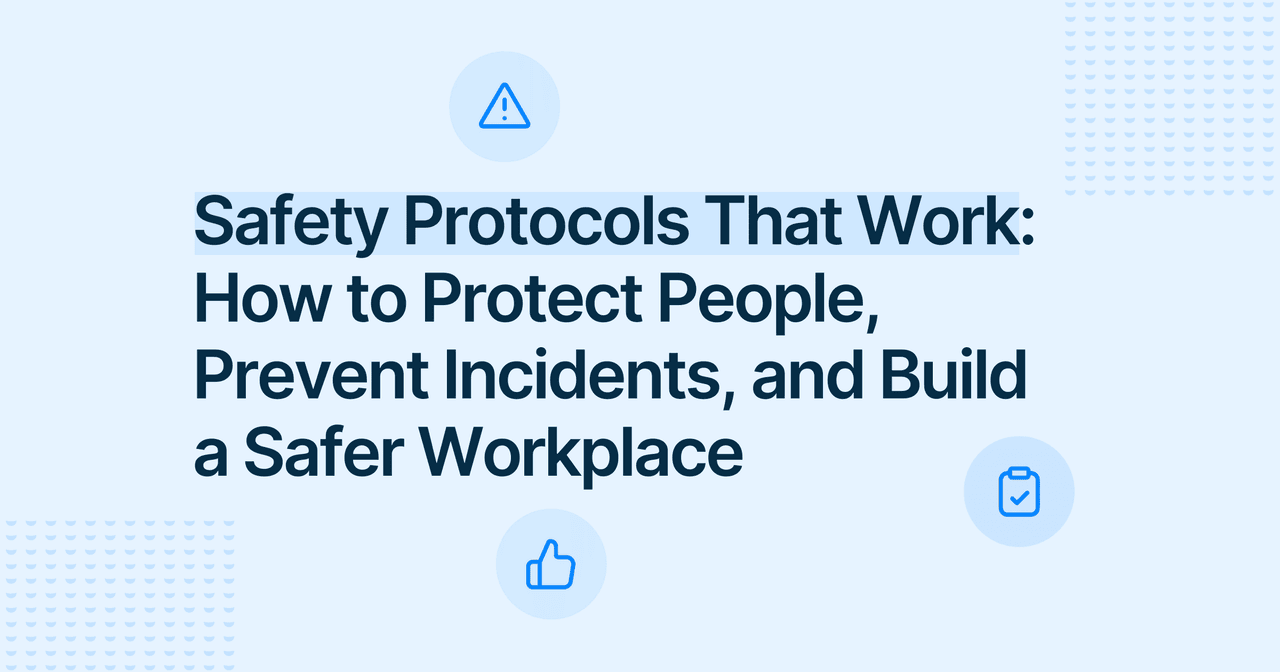



Modern Compliance Platform
Centralized whistleblowing and investigations in one secure platform.
Legal & Compliance

Yeva Bartkiv
Copywriter
Published
2025-07-10
Reading time
7 min


Table of contents
Subscribe to our newsletter
In 2025, regulatory oversight is no longer confined to legal departments. Human resources teams are now at the center of labor law enforcement, data privacy standards, internal investigations, and ethical workplace initiatives. As legal frameworks evolve and compliance demands increase, organizations can no longer afford to rely on manual systems or loosely connected workflows.
Modern HR compliance software addresses these issues by providing centralized, automated platforms that help organizations maintain legal adherence, secure sensitive employee data, and streamline operational complexity. These systems not only reduce the risk of fines and non-compliance but also strengthen accountability, transparency, and employee trust.

Organizations without a strong compliance infrastructure may experience:
HR compliance software is a category of digital platforms that help human resources departments manage legal responsibilities, enforce internal policies, and streamline key HR functions. It plays a vital role in enabling compliance across jurisdictions, departments, and employee groups by integrating documentation, workflows, alerts, and communication into a unified solution.
These platforms are designed to automate essential processes while protecting sensitive employee data. Whether deployed by small businesses or multinational corporations, HR compliance solutions help organizations build systems that are scalable, secure, and aligned with labor and data regulations.
Typical features of HR compliance software include:
While manual compliance efforts may seem manageable in smaller environments, they quickly become unworkable as organizations scale or expand across jurisdictions. Paper-based systems, spreadsheets, or disconnected email chains introduce inconsistency and create gaps in compliance that may expose an organization to significant legal risk.
Manual processes also limit the ability of HR professionals to respond efficiently to audits, policy breaches, or regulatory inquiries. These systems lack visibility, automation, and the ability to adapt to the increasing volume and complexity of HR compliance demands.
Key limitations of manual compliance include:
By contrast, digital compliance platforms offer automated alerts, structured workflows, and centralized access to the most up-to-date policies, forms, and documentation.
When selecting an HR compliance solution, decision-makers should focus on features that support automation, integration, and legal consistency. Effective platforms combine policy enforcement with employee engagement tools, data protection, and seamless integration with existing HR systems.

Core features to consider include:
The market for HR compliance software is expanding, with many platforms offering varied levels of functionality. Each provider caters to different priorities such as global reach, legal automation, or policy enforcement. Below is a comparison of five leading platforms in 2025.
FaceUp stands out as the most complete and adaptable HR case management software currently available. It is built for organizations seeking to automate compliance workflows, protect employee data, and streamline internal reporting and investigations.
Key features of FaceUp include:
Advantages:
FaceUp is the ideal platform for HR departments focused on compliance, internal transparency, and policy enforcement at scale.
Rippling combines HR and IT management in a single platform, making it especially useful for organizations looking to streamline onboarding and automation across multiple systems.
Strengths:
Limitations:
Deel is designed for organizations that manage international employees and contractors, providing tools for global hiring, compliance, and payroll administration across multiple countries.
Strengths:
Limitations:
SixFifty focuses on legal automation and is backed by a national law firm. It provides customizable templates and legal documents tailored to U.S. employment law.
Strengths:
Limitations:
HR Cloud provides a straightforward compliance platform for mid-sized businesses that require onboarding and basic policy management functionality.
Strengths:
Limitations:
Every HR department has unique compliance priorities, shaped by factors such as company size, location, and industry requirements. Selecting the right HR compliance software depends on understanding those needs and matching them to available features and capabilities.

Consider these factors during the selection process:
A comprehensive evaluation helps ensure that your chosen platform not only meets compliance needs but also supports broader HR initiatives and performance goals.
In 2025, compliance is no longer an isolated function. It touches every stage of the employee experience from onboarding to termination. HR professionals must now lead organizational efforts to ensure legal accountability, protect sensitive data, and foster an ethical workplace culture.
HR compliance software plays a critical role in achieving these goals by:
By integrating compliance into daily operations, HR teams reduce organizational risk while improving workforce efficiency and engagement.
Among today’s best HR compliance software platforms, FaceUp offers the most balanced and forward-thinking solution. With tools for whistleblowing, policy management, case tracking, document control, and integration, it enables HR departments to manage legal obligations and internal governance from a single platform.
FaceUp’s ease of use, scalability, and commitment to data security make it the top choice for organizations seeking to modernize HR compliance in a complex legal landscape. We strongly recommend downloading our free HR compliance checklist, which will help you determine if FaceUp is the ultimate solution for you.




Centralized whistleblowing and investigations in one secure platform.
Keep Reading

Alaa El-Shaarawi2026-02-108 min
Legal & Compliance

Alaa El-Shaarawi2026-02-098 min
Workplace Environment

Marie Roland2026-02-033 min
Workplace Environment

Alaa El-Shaarawi2026-02-029 min
Workplace Environment